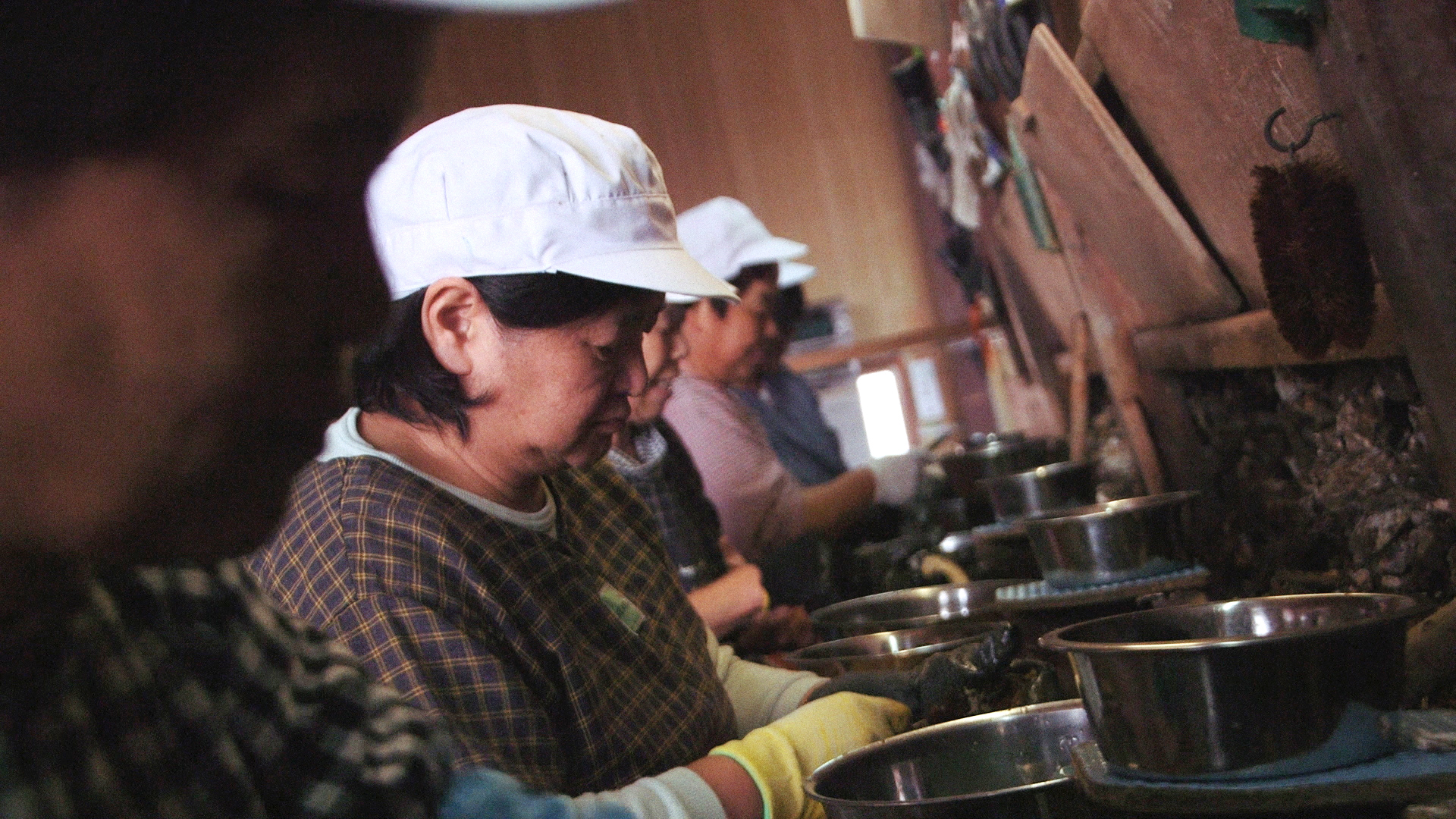Japanese documentaries tend to be blandly inoffensive, especially those dealing with sensitive topics. Typically, a velvet-voiced narrator sets the scene and a sympathetic interviewer lobs questions to her subjects as gently upbeat music plays in the background.
By that measure, New York-based documentary director Kazuhiro Soda makes very un-Japanese films indeed, though he isn't the first here to reject the above-mentioned methods and formulas. Since 2007, when he released his observational documentary "Campaign," about an eccentric former classmate's run for Kawasaki city council, Soda has succeeded in illuminating truths his more conventional colleagues elide or ignore.
This is also a kind of high-wire act, as his latest film, "Oyster Factory" ("Kaki Koba"), makes clear. Premiering at Locarno's film festival in 2015, this documentary about oyster harvesting in the port of Ushimado on the picturesque Seto Inland Sea was shot in only three weeks, minus the usual sort of advance work to smooth the way. This is not laziness but rather Soda's standard way of staying fresher to new situations than filmmakers who arrive on location with all their expert interviews neatly scheduled.



















With your current subscription plan you can comment on stories. However, before writing your first comment, please create a display name in the Profile section of your subscriber account page.